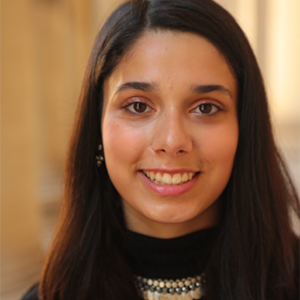When I came out as queer, as a freshman in high school, I did not understand how diverse, complex, and historical the LGBTQ+ community was. I came out in the months in which Obergefell v. Hodges was argued in front of the Supreme Court, and LGBTQ+ equality was becoming a mainstream discussion in the United States. Back then, I didn’t view my coming out as a politicized statement. Instead I saw it as a declaration of self-expression. Now, five years later, I understand that publicly asserting your identity is inherently political. In this current revolutionary political moment, it is more important than ever that we, the LGBTQ+ community, own our politicized identities and use them as a platform from which to mobilize. This Pride, marking the the fifth anniversary of marriage equality and the 51st anniversary of the Stonewall riots, reminds us that LGBTQ+ identities continue to be both political and beautiful, as well as so much more.
After coming out, I was welcomed by my friends with open arms and quickly developed what many LGBTQ+ people call a “chosen family.” My chosen family was comprised of fellow young queer people of color who guided me through the perils of everything from my first heartbreak to navigating ever-evolving terminology to becoming involved in queer political organizing in our hometown of Pittsburgh. The same friends who went with me to LGBTQ+ proms and drag shows also went with me to political rallies about issues ranging from racial justice to abortion access to getting cops out of our public school district. We went to Pride together, where we simultaneously danced to the music blasting from speakers, waved signs that read “Pride is Political”, and chanted “Black Lives Matter”.
As friends who cared for and validated each other, we recognized that not only were all of these political issues interconnected but that our identities existed at the intersection of them. Our early understanding of intersectionality didn’t develop through studying critical race or queer theory, it came from living it. Growing up in Pittsburgh, a place routinely ranked one of the country’s most livable cities, my friends and I were racially profiled, called homophobic slurs, catcalled, and faced even more direct racialized and gendered violence than that. Experiences of oppression such as these caused my friends and I to ask, who exactly is Pittsburgh livable for? Having my chosen family of similarly identifying young queer people of color allowed me to survive in these conditions of uncertainty and ultimately develop a cherished community out of it.
Coming out and coming into your own identity can be difficult regardless of what other identities you carry, but it can be more difficult whenever those other identities exist outside of the mainstream. QTPoC, queer and trans people of color, is the combination of two umbrella terms used to capture LGBTQIA+ (lesbian, gay, bisexual, transgender, queer, intersex and asexual) people who are also people of color. The combination of these two terms captures a beautiful and incredibly diverse swath of people, in which no two people’s lived experiences are exactly the same. People within the broader QPoC community have different experiences and benefit from different privileges based on their specific identities.
In reflecting on my experiences as a queer person of color, I must also reflect upon my privilege. I am a queer, multiracial, South Asian and white, cis-gendered woman. I experience simultaneous privilege and oppression because of these identities, proving that no person is just one thing. It is not lost on me that my ability to have come out and to publicly organize is owed to queer Black people who worked relentlessly so that LGBTQ+ people today could enjoy recognition, respect and even legal protection.
As we end this unprecedented Pride month, I am reminded that moments of queer celebration, struggle and liberation can all coexist in the same community at the same time. Not only was the first Pride a riot, it was a riot led by queer people of color who put their bodies on the line so that we could exist today. We owe it to these founders of the modern LGBTQ+ movement to not only celebrate this Pride, but to take action. Whether you’re signing petitions, unlearning anti-Black and queerphobic things you were taught, talking to (chosen) family members about these issues, donating to Black-led queer organizations, or on the front lines, I commend you for your work and urge you to do even more. I can’t wait to see the world we’re able to build together.


